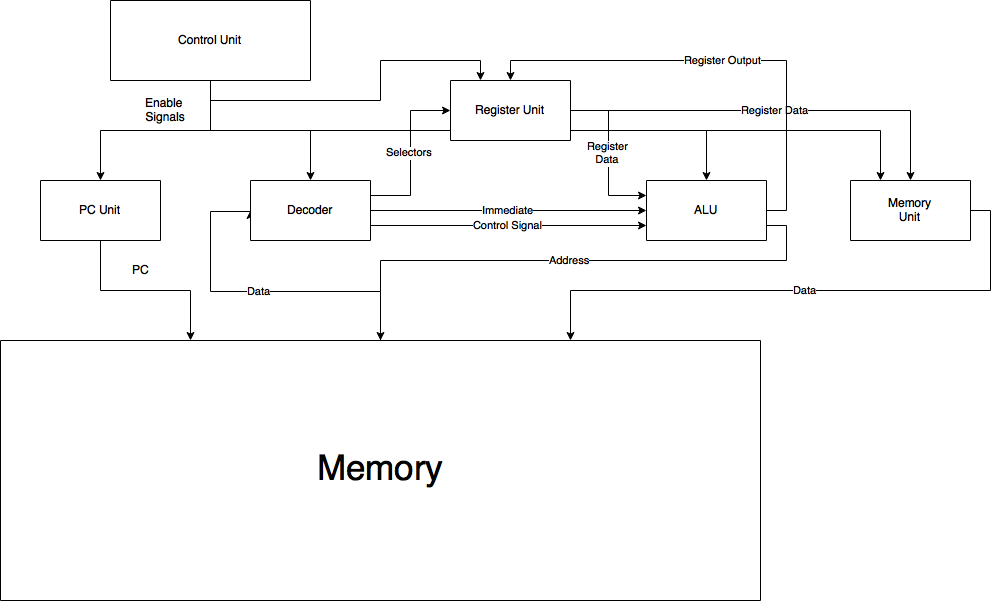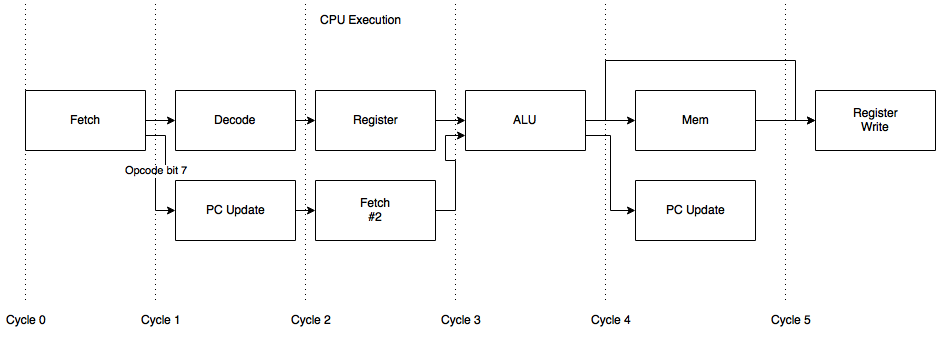This is a simple(ish) 16 bit CPU formed in a collaboration between C-Elegans and flaviut. The CPU is a load-store architecture, with variable length instructions (multiples of 16 bits) and 7 GP registers. The CPU is written in Verilog and is synthesizable for Altera FPGAs (Currently tested on a DE0-Nano).
The included assembler is written in C, and uses bison and flex for parsing. It's not of the best quality, but it works.
Dependencies:
flex bison glib-2.0
It can be built by:
cd assembler
mkdir build
cd build
cmake ..
make
./d16-main/d16 <file> <output>
d16 input.d16 -o output.o
-h: display assembler help
-b: assemble to flat binary instead of a.out object file
-o: set output file (defaults to a.out)
By default the assembler outputs files in a.out object file format which can then be linked with the d16 linker (d16-ld)
A general layout of the CPU is provided here, this is subject to change during the project
The CPU's execution cycle takes 5 cycles for most instructions, 6 cycles for memory instructions, and 7 for jump instructions.
Most modules have a testbench associated to verify the functionaity of the module. However, most testbenches do not include asserts and cannot be used as automated verification that the module is functioning correctly. To run testbenches, it is necessary to install vbuild, my verilog build helper and icarus the verilog simulator.
git clone https://github.com/C_Elegans/vbuild
cd vbuild
sudo python setup.py install --install-scripts /usr/local/bin #or wherever else you want the tool installed
Once vbuild is installed, to run a testbench, simply run vbuild test testbench_tb.v and open dump.vcd to see the output.
Several modules also contain SystemVerilog Asserts for use in formal verification. To run formal verificaiton on a module, first install yosys and a SMT solver such as z3 or yices. Formal verification can then be run by entering vbuild smt2 module.v solver or vbuild formal module.v. To formally verify all applicable modules, run ./run_formal.sh.

